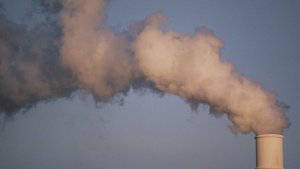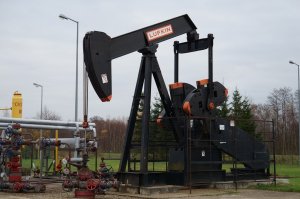The alarm that greeted President Donald Trump’s announcement that the U.S. will withdraw from the Paris climate accord was an overreaction in one respect. The pace at which the world moves away from fossil fuels won’t, in fact, be greatly affected. The other countries that together now account for 85% of carbon emissions will not change course even if the U.S. drags its heels. In another respect, however, Trump’s latest proclamation is truly alarming: in what it means for America’s economy.
The U.S. joins Syria and Nicaragua as the only countries in the world that are not parties to the Paris accord. Syria’s absence stems from the fact that the country is in a horrific civil war and its leaders are under international sanctions. Nicaragua refused to sign not because it considered the accord too onerous, but because it didn’t go far enough to combat climate change.
Oddly, Trump echoed Nicaragua’s position when he said the accord would reduce global temperatures by only 0.2 degrees Celsius in 2100, calling this a “tiny, tiny amount.” His main rationale for pulling out, however, was not the modesty of the accord’s benefits. Instead it was “the draconian financial and economic burdens the agreement imposes” on the U.S. Never mind that the agreement “imposes” nothing: All commitments under the Paris accord are voluntary and non-binding, and each country’s policies can be changed at will.
Trump asserted that “the onerous energy restrictions it has placed on the United States could cost America as much as 2.7 million lost jobs by 2025.” His source for this claim was a report by a Washington, DC consulting firm called National Economic Research Associates. In a footnote, the report acknowledges two omissions: First, it “does not take into account potential benefits from avoided emissions,” and second, it “does not take into account yet to be developed technologies” but instead is based on “current technology costs and availability.”
Both limitations have huge economic implications. Assuming zero technological change means ignoring the rapidly plummeting costs of renewable energy. And the motivation for pro-active climate policy is precisely to secure the non-trivial benefits of avoided emissions, like keeping Miami above water. A side benefit, also far from trivial, is cleaner air: The Obama administration’s Clean Power Plan would have generated health benefits for Americans valued at $29 billion per year by 2020.
A third major omission is that the report does not take into account robust job creation in energy efficiency and renewable energy sectors. The U.S. coal industry today employs roughly 76,000 workers; the solar industry employs more than 250,000. As my colleagues Robert Pollin and Heidi Garrett-Peltier have documented, investments in energy efficiency and renewables yield substantially more jobs per dollar than spending on fossil fuels. At the same time, far from writing off coal miners and other fossil fuel workers as “collateral damage” of the energy revolution, they and others advocate “just transition” policies for their re-employment and pension guarantees.
The “draconian” financial burden called out by Trump is the UN’s Green Climate Fund, which he claimed is “costing the United States a vast fortune.” National contributions to the fund are strictly voluntary. The U.S. has pledged $3 billion – less than $10 per American – a “tiny, tiny” amount, one could say, compared to climate adaptation needs in vulnerable countries. Sweden has pledged six times as much per person.
Trump’s announcement will have little effect on the pace of the world’s transition from fossil fuels to clean energy. As before, all other countries (apart from Syria) remain committed to the Paris accord or stronger measures (as in Nicaragua’s case). China is investing heavily in solar, wind and energy conservation, and starting to scrap plans for new coal plants. India, too, is canceling coal plants because they can no longer compete with cheaper solar power. In the US, Trump is moving in the opposite direction: before withdrawing from Paris, his administration decided to scrap the Clean Power Plan and other Obama-era initiatives.
The good news is that within the U.S., many remain committed to cutting carbon emissions. California, the world’s sixth largest economy, is proposing to extend its cap-and-trade program beyond 2020 by setting one of the highest carbon prices in the world and rebating the revenue directly to its people as carbon dividends. A dozen states that together account for 36% of U.S. GDP, including California, New York, Washington, Massachusetts, Minnesota and Virginia, have entered into a U.S. Climate Alliance committed to meeting or exceeding the Obama administration’s goals. Major cities, along with corporations that compete in the global marketplace, have announced similar plans.
Still, Trump’s announcement will handicap the US economy in the energy revolution that promises to be the defining technological breakthrough of the 21st century. Forsaking national movement toward energy efficiency and clean energy means foregoing opportunities for both cost savings and job creation. Compare this to the picture a century ago, when the U.S. pioneered the transition from horses to automobiles, averting the specter of cities drowning in manure. It is as if, today, the world was moving to automobiles while the U.S. was sticking resolutely to its horses.
For the American economy, this is a recipe for global non-competitiveness. Moreover, as other countries forge ahead in the energy revolution, Trump’s policies expose U.S. exports to the risk of carbon sanctions.
Within the U.S. economy, those states, cities and businesses that persevere in the energy revolution will fare better than those that lag behind. Over time, this divergence will further widen the economic inequalities that are tearing American society apart.
The world energy revolution train has already left the station. It started late and it’s running behind schedule, but it’s gathering steam. Trump’s announcement does not alter this reality. His policies will merely relegate the U.S. to the caboose. In the name of “America first,” he’s really putting America last.
________
James K. Boyce teaches economics at the University of Massachusetts Amherst. He is the 2017 recipient of the Leontief Prize for Advancing the Frontiers of Economic Thought.





